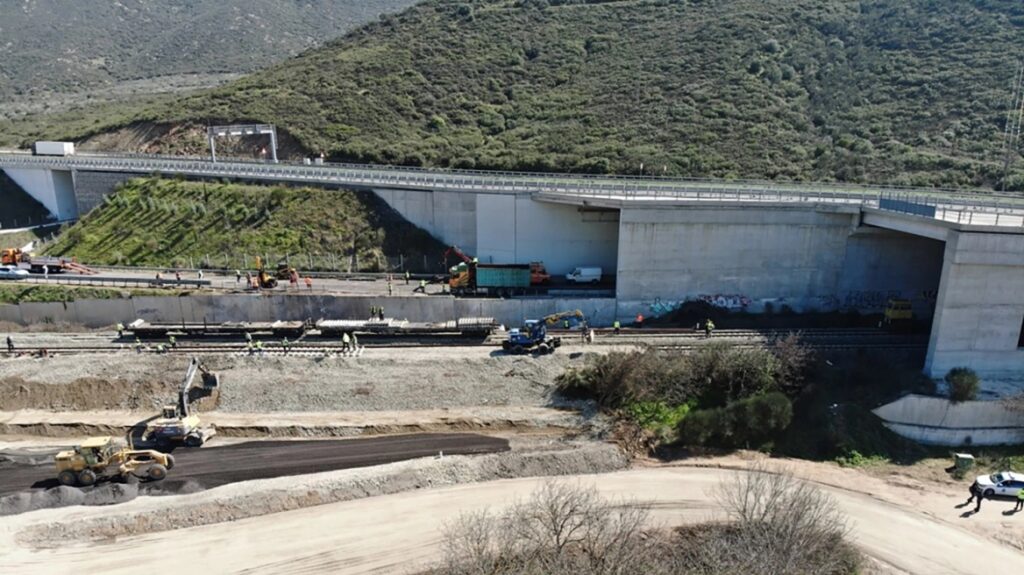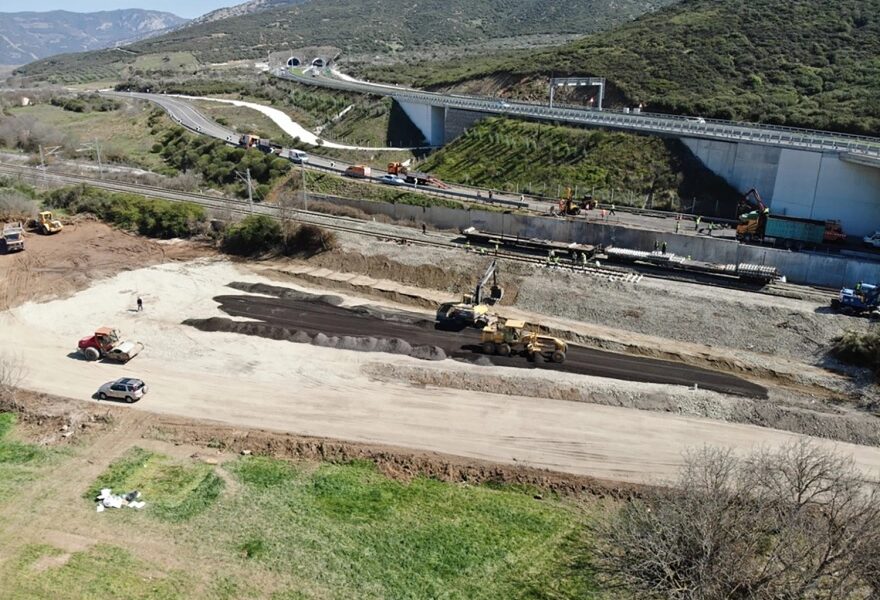The work to remove the wreckage of the trains from the site of the tragic accident in Tempi is in progress.
More specifically, the special crews removed the carriages and the debris from the area in a very short period of time after the completion of all checks by police and the Fire Department.
See the video:
https://www.youtube.com/watch?v=PxLWacU0yrg
In particular, the two carriages that were not destroyed, were withdrawn from the scene of the tragedy by dragging them on the tracks, while for the rest it was necessary to use a crane and trucks, with the process being particularly complicated.
Finally, the restoration works of the railway line have started and are already nearing completion.






Relatives of those killed in Greece’s worst-ever train accident stood in silence at the Larissa General Hospital amphitheatre, normally used for doctors’ seminars.
As they listened to the deputy health minister tell them how they were to give DNA samples that would be used to match the DNA of body parts recovered from the crash scene, they did not speak, and barely registered facial expressions. They walked silently in small groups as their names were called.
Most were couples in their 40s and 50s – perhaps the parents of the many registered missing children.
One woman held her head in her hands and stared blankly ahead.
That so many of the 57 confirmed dead and 56 missing in the February 28 disaster were young has touched a nerve with Greeks.
Some victims had been returning to their universities after a long weekend celebrating Greek Orthodox lent.
Twin sisters Thomi and Chrysa Plakia, 20, and their first cousin, 19-year-old Anastasia Plakia, were returning to their university studies in Thessaloniki when their train, the InterCity 62, slammed into an oncoming freight train at an estimated combined speed of 280km/h. All three women were killed.
Their hometown of Kastraki was steeped in mourning, said restauranteur Eleftheria Polyzou.
“We pass each other on the street. Our eyes meet, and nobody knows what to say,” she said.
Sorrow has spilled over into rage in this society, where nuclear family bonds are nothing short of sacred.
The Larissa stationmaster has confessed to sending train 62 north on the southbound track, but many Greeks do not believe he was the only one to blame.
“It’s not just the stationmaster, it’s not just his human error of not switching the tracks, it’s everything that happened for 20 years before that,” said Andreas Samartzis, a Larissa restauranteur.
“When you’re a father, you feel everything twice as intensely as others. I don’t know what I would do if my children had been involved.”
For days, people have watched television images of cranes lifting wreckage off the tracks.
The passenger train’s engine and the first two cars were so utterly destroyed, they were being hoisted away in mangled strips of steel.
Victims in these cars might not even afford the authorities DNA samples to work with, as their remains burned in a fire so powerful that it melted metal.
Only the third car, poised halfway off the track, was recognisable as rolling stock.
The stationmaster, Vasilis Samaras, may face charges of negligent manslaughter and the government has set up a three-man committee of inquiry into the causes of the accident.
But some believe Samaras is being used as a convenient scapegoat.
“They’ve focused on one tree, and have moved the forest away,” said a taxi driver from Athens, Kyriakos Dellis, referring to officials who left the Greek railway system without automated safety systems.
“What we need is not an inquiry but a people’s court, right here in Syntagma Square. We’ve got good prosecutors and good lawyers.”
One more Hellenic Railways Organisation official has been suspended. Dimitris Nikolaou, the regional safety inspector, is being investigated for scheduling Samaras to work that night.
But the chain of responsibility goes further, says Panayotis Paraskevopoulos, a recently retired union chief of the Hellenic Railways Organisation.
There were supposed to be three stationmasters present at Larissa when train 62 departed, he told Al Jazeera.
“When [Samaras] showed up at 10pm to start his shift, the other two left. They were scheduled to stay until 11pm,” he said.
READ MORE: Nikitas and Kalliopi tragically died when going to Thessaloniki to surprise their parents.


